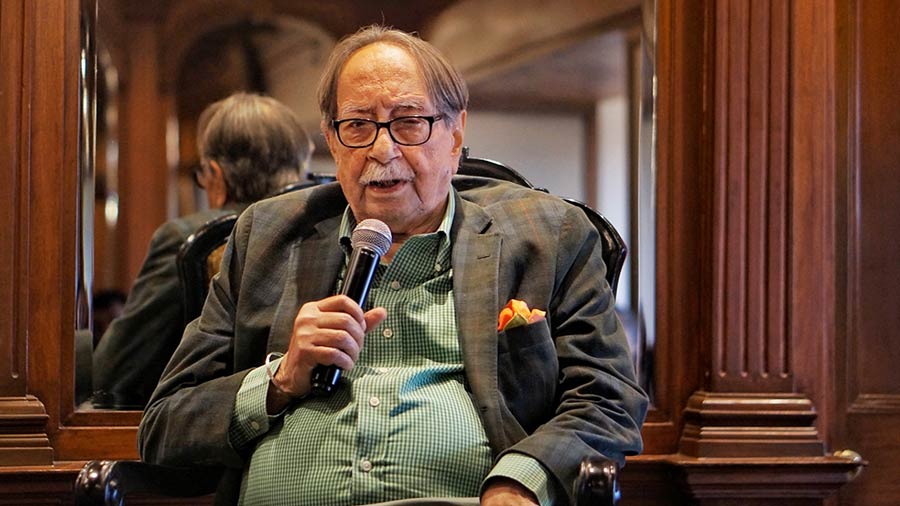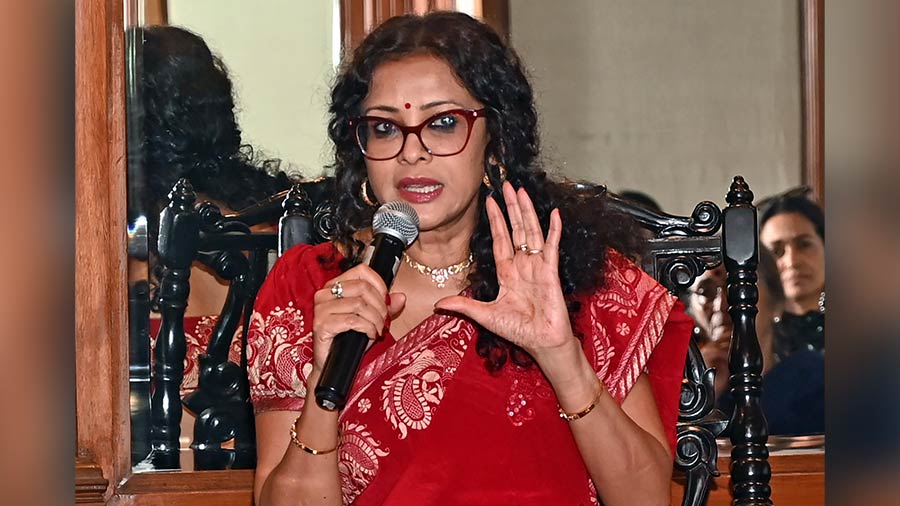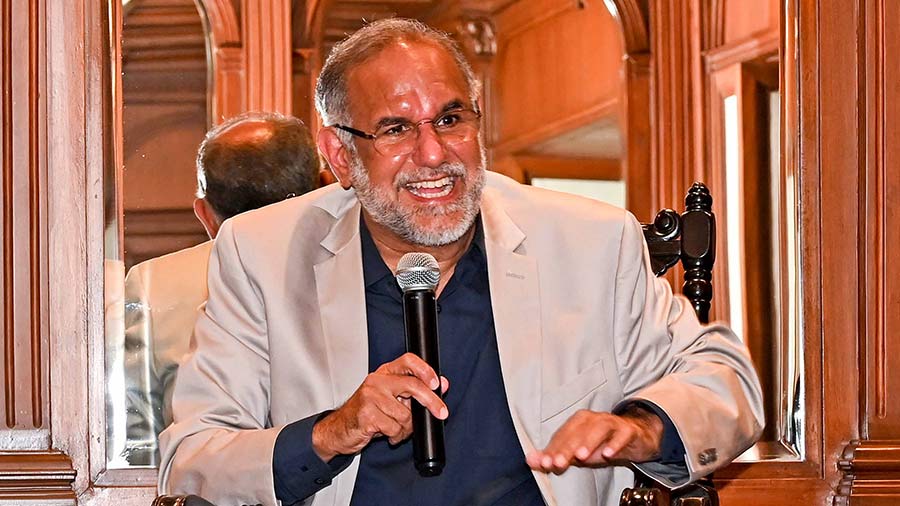A spymaster’s life is seldom banal, even less so when you are a former special director of the Indian Intelligence Bureau and former secretary of the Research & Analysis Wing (RAW). As the latest guest at An Author’s Afternoon at Taj Bengal, organised by the Prabha Khaitan Foundation, in association with Shree Cement Ltd and with My Kolkata as digital partner, Amarjit Singh Dulat, author of A Life in the Shadows: A Memoir, was in conversation with noted columnist and businessman Suhel Seth.
The making of A.S. Dulat
It was said that “the Battle of Waterloo was won on the playing fields of Eton”. For Dulat, his battle was won when he was admitted to Bishop Cotton School, Shimla. Despite never taking education too seriously, Bishop Cotton School was instrumental in him developing a well-rounded personality. “I went to Bishop Cotton in 1951 at the age of 10 and spent six years there. Most of all, I learned there that truth is important. If you've done something wrong, you put your hand up and own it. That’s how you do the right thing,” explained Dulat.
A second home in Kolkata
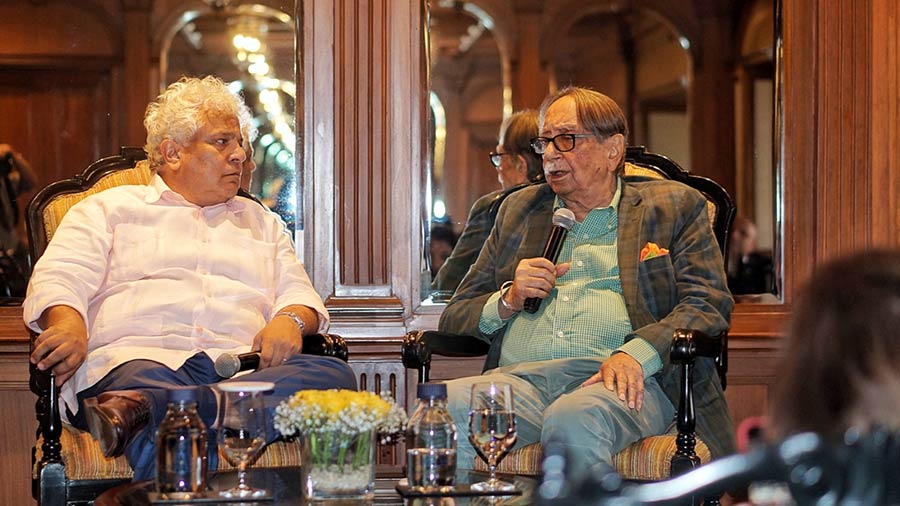
Dulat in conversation with Suhel Seth
The author has been frequenting Kolkata ever since he was a boy of 12 With his uncle and sister residing in the city, Kolkata, with its warmth and civility, has always been a second home to him.
“Let me tell you this… when I began my career at the Intelligence Bureau (IB), I was allotted the West Bengal desk. I came here in the 1970s and one of the doyens of communism, RK Mukherjee, was the joint director. I wanted to visit him at his office and he asked me not to because he wanted me to spend the next three days exploring every part of Kolkata. In fact, the other day I was driving down with my brother and I saw this bus with ‘BBD Bagh’ written on it and I paused for a second and asked ‘Isn’t this Dalhousie Square?’ Turns out I still remember the nooks and crannies of the city,” narrated Dulat.
In fact, he had also come to Kolkata for his honeymoon. Explaining further, Dulat said that Kolkata was the only place he and his wife could afford. “All we had to do was catch the Kalka Mail and then everything was free. We stayed for a week with my uncle, who was very kind to give us a room. The last five days, we spent with my sister who was also very kind to make us sleep on the ground!” joked Dulat.
A career of glory and chances
It is hard to believe that a career of such intrigue and significance was not part of Dulat’s initial plan. “To be honest, I wanted to make it to the Foreign Service, which I didn’t. I didn’t make it to the Indian Administrative Service either. So, the third best was the Indian Police Service, which I was very proud to be a part of. When I came to the IB, it was also not by choice. I was very lucky to have shared my room with a great man like MK Narayanan. He was 10 years my senior. I saw him operate and I learnt a lot from him,” reminisced Dulat. But Narayanan was not the only senior that he held in high regard. Dulat also learnt a lot from the former IB chief Shyamal Datta: “I’d never have been anything without him. He made me the chief and I owe a whole lot to him.”
The India of yesterday and today
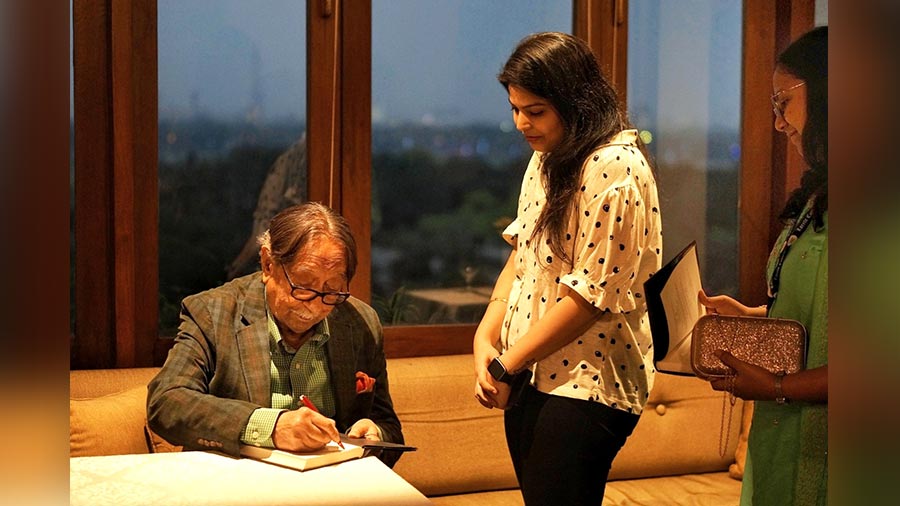
Dulat signing copies of his book after the session
When Dulat joined the service, he was serving the then Prime Minister of India, Indira Gandhi, who was the epitome of power and could seemingly do no wrong. But Dulat sensed a significant shift in the prime minister’s demeanour post the passing of her younger son, Sanjay Gandhi.
“I always felt there were two Indiras, one between 1967 and 1975, when PN Haksar was with her and she did everything right. It was also the time when we won the war for the Bangladeshis. But once she lost Sanjay Gandhi, she was never the same again.” Acknowledging that Indira Gandhi’s regime had become autocratic, he conceded that “in the end she destroyed herself.” He added: “Once she sent the army into the Golden Temple and Blue Star happened, she knew the Sikhs would never leave her.”
Speaking about the government of today, Dulat feels that the government is autocratic but that “Modiji is very difficult to dislodge because he has massive popular support.” However, Dulat clarified that his interactions with the current prime minister have always been positive. He was nonetheless critical of the atmosphere of polarisation permeating Delhi. “I walked with Rahul Gandhi (as part of the Bharat Jodo Yatra) because he invited me to. I don’t know the Gandhi family now, but I enjoyed the walk and was impressed. But now I’m being called an anti-national and treated as an outcast. This is the kind of sentiment that prevails in Delhi, not in Kolkata,” observed Dulat.
The Kashmir question: A dilemma without a solution
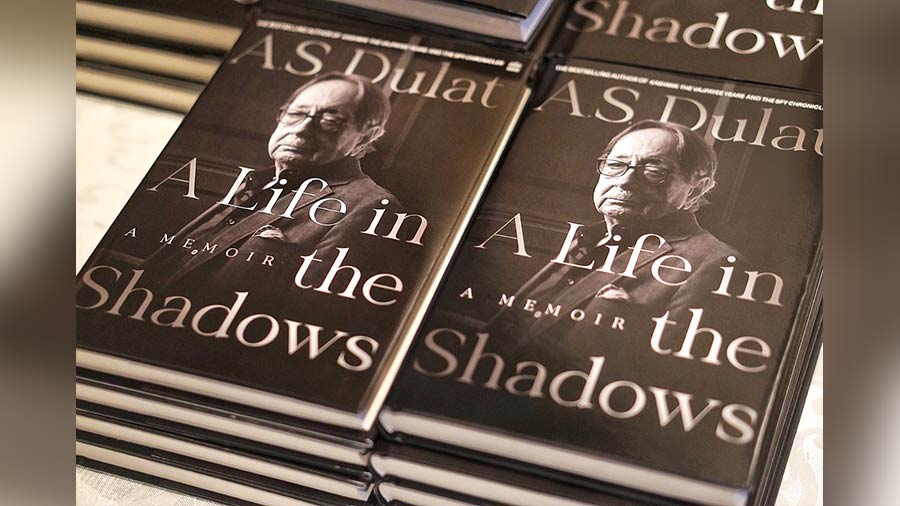
‘A Life in the Shadows’ offers intriguing insights from Dulat’s remarkable career
When asked by Seth about how he perceives the revoking of Article 370, Dulat said that “it should have never happened” because it took away from the state (Jammu and Kashmir) and the people the last shreds of dignity. “The militancy has reduced in Kashmir and there are no separatists left. But the tragedy today is that…there is no permanent solution to Kashmir and there will never be one at this rate. The only solution to Kashmir is staring us in the face, which is to have elections there and have an elected government rule the state. Let me further say that not one person in Kashmir can function without the support of the central government. They’re crying out to be on the right side of Delhi and we’re not accepting it,” summed up Dulat.
The session concluded with a lively interaction with the audience. Shamlu Dudeja, chairperson of Calcutta Foundation and SHE Foundation, felicitated Dulat while Vijay Shrikent, area director, West Bengal, and general manager of Taj Bengal, Kolkata felicitated Seth.
Guests speak
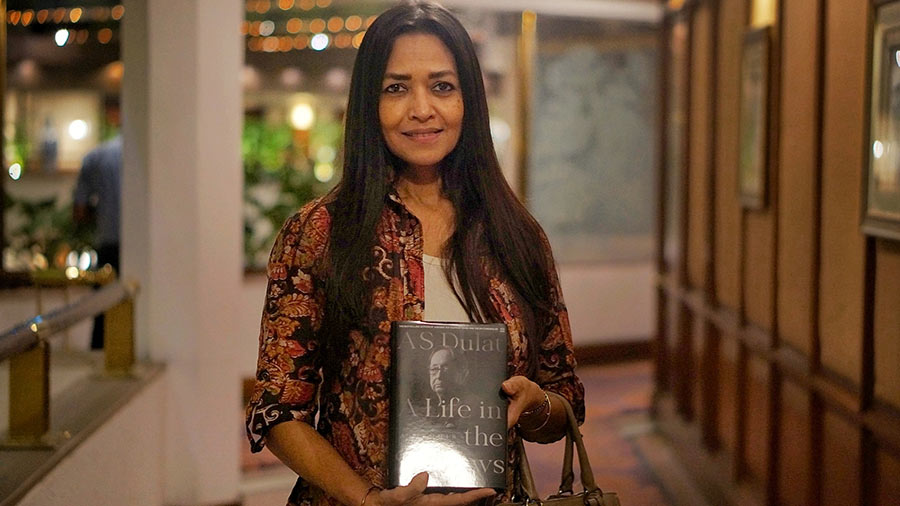
Esha Dutta

“It was an extremely engaging and informative session. In the presence of authors and personalities like these you get to know so much. You get to know so much of what happens behind the scenes. I’m sure the book is going to be a fabulous read.”
— Esha Dutta, Ehsaas Woman of Kolkata
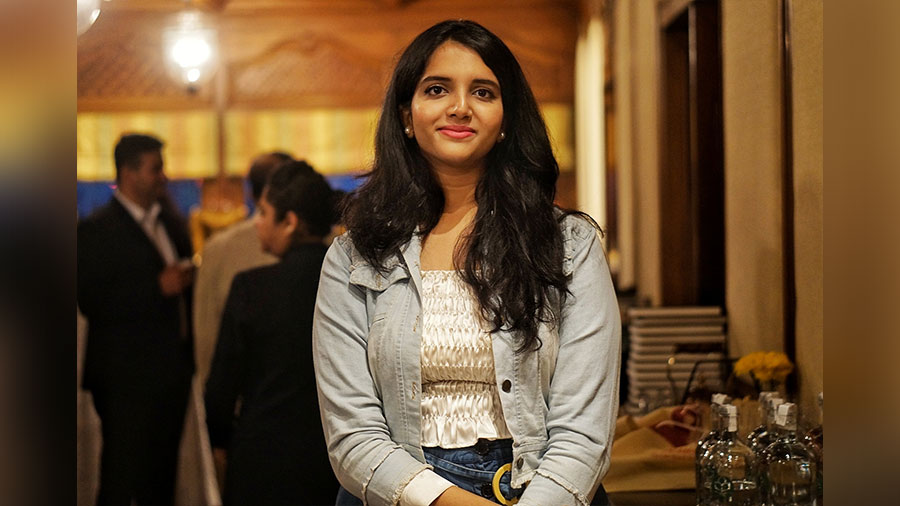
Parama Ghosh

“It was an amazing session. Once I get more time, I’d like to go into the details of what was discussed, especially about Kashmir.”
— Parama Ghosh, student of Loreto College
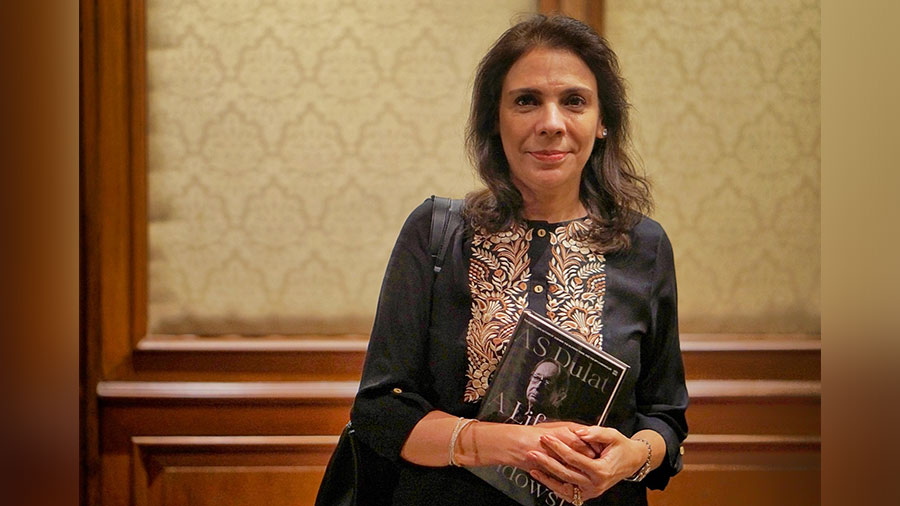
Poonam Sabarwal

“Dulat is a very dear friend of mine from Delhi. It’s always a pleasure hearing him talk because you get to know so much about what is happening in the country. It was wonderful being part of this.”
— Poonam Sabarwal
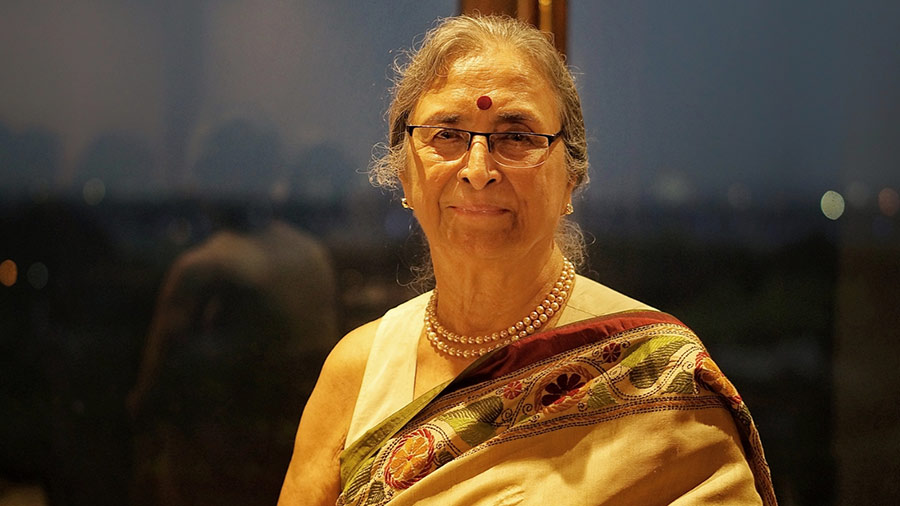
Shamlu Dudeja

